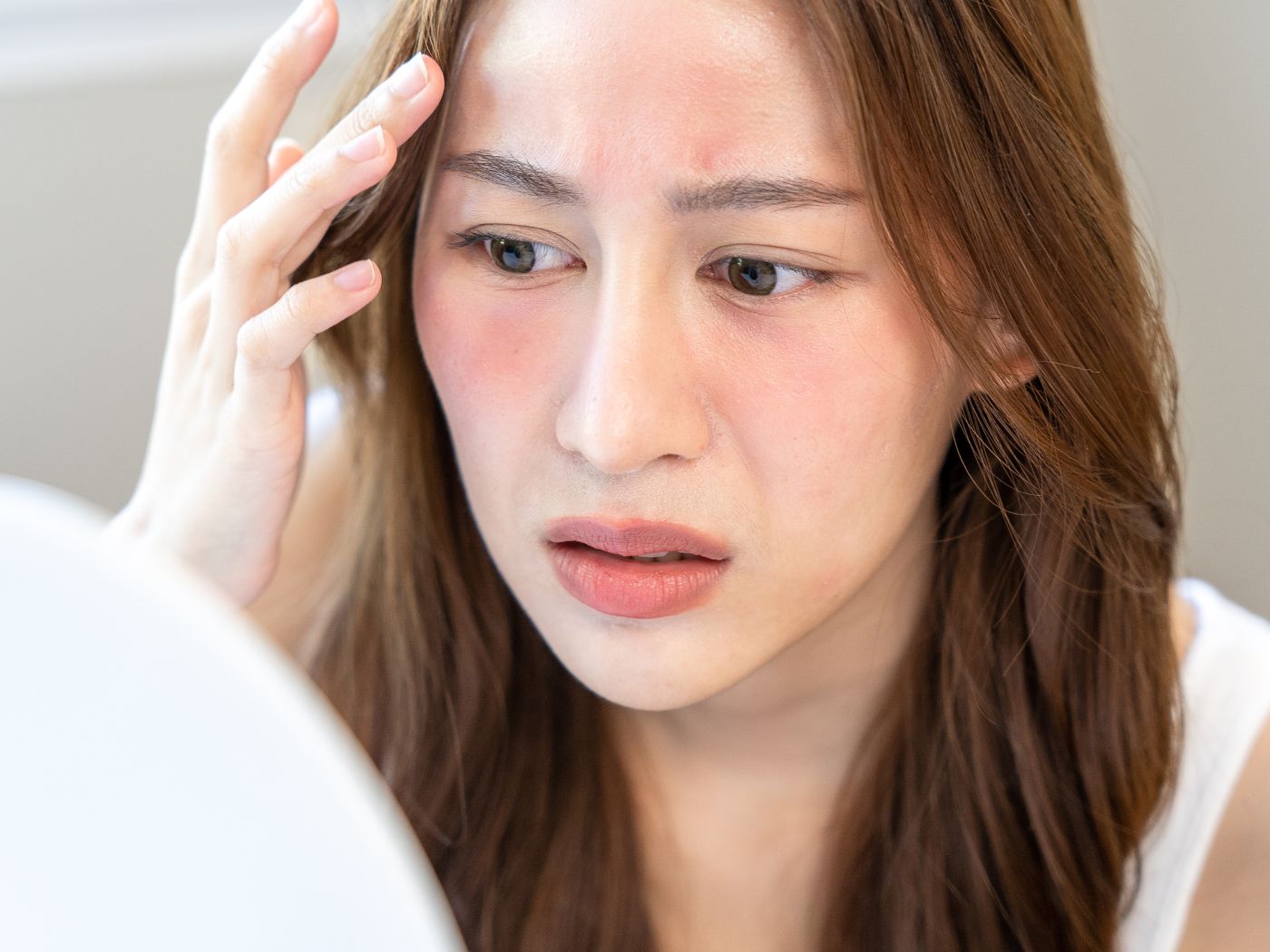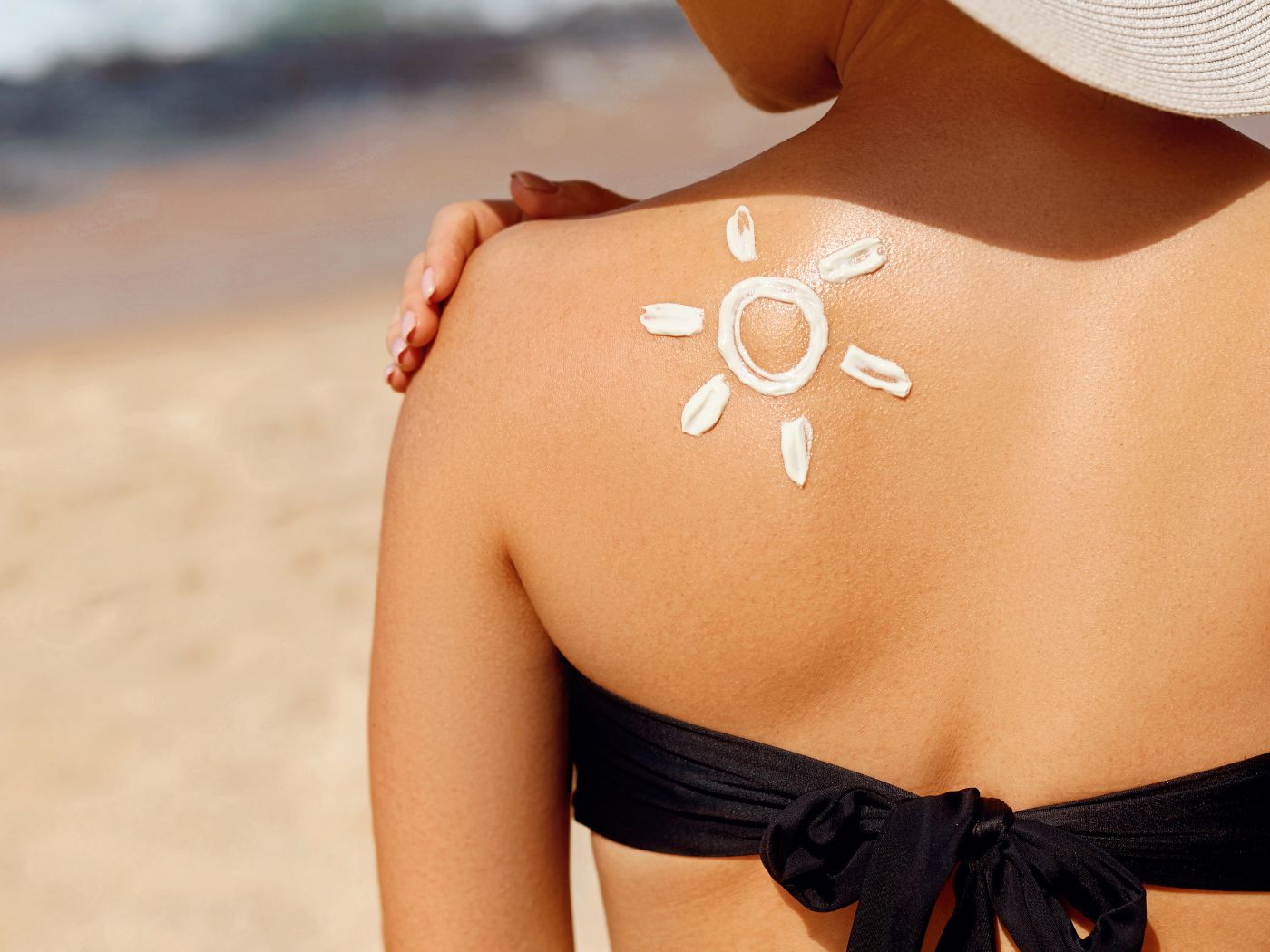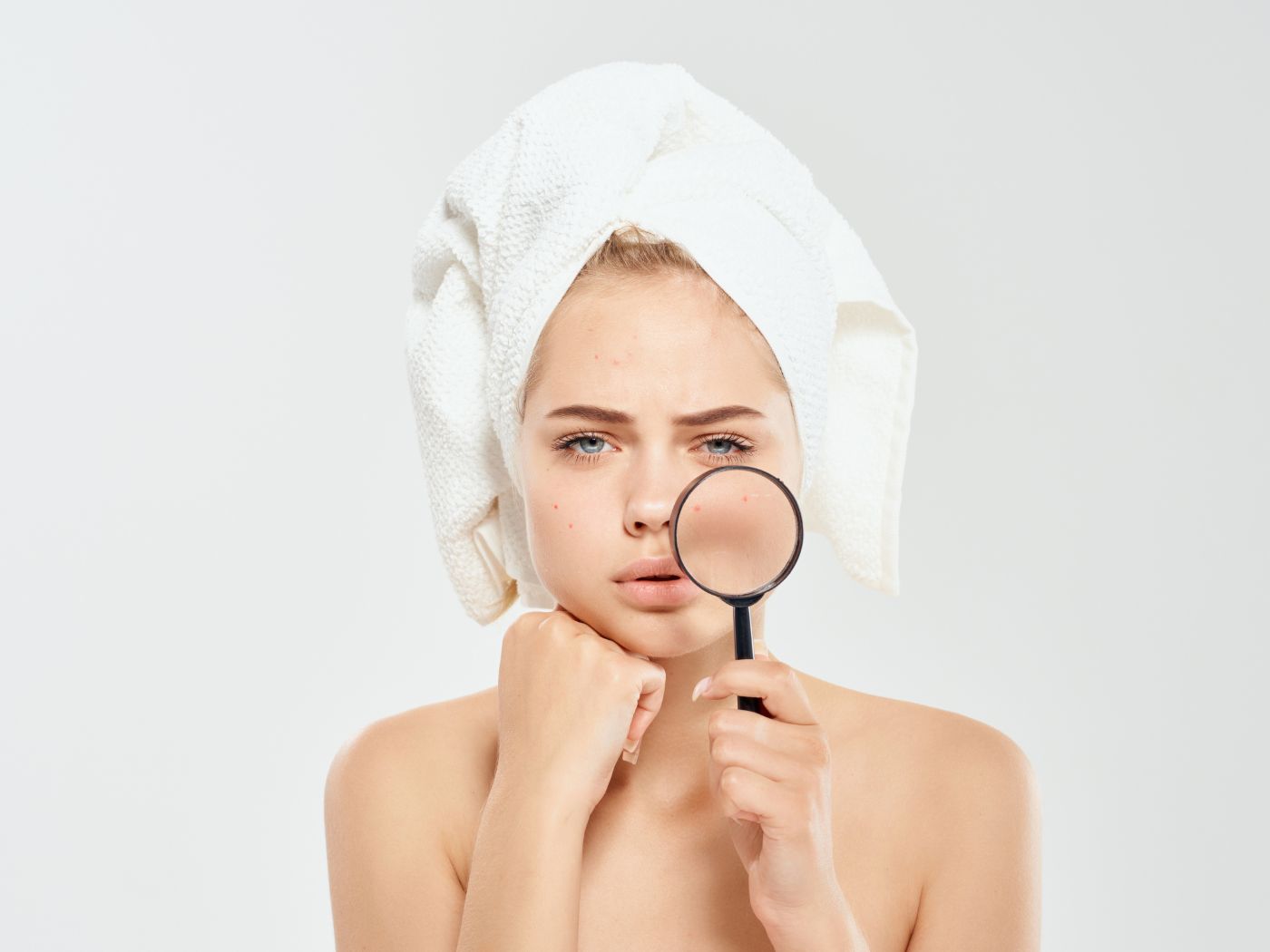While sunburn is a common problem faced by people all over the world, sun poisoning is not that common. There is a difference between sunburn and sun poisoning that you must understand to avoid both. Today we will address the common topic of sunburn vs sun poisoning to help you prepare your skin for the upcoming harsh summer sun! So let’s begin, shall we?
-
What Is Sunburn?
-
What Is Sun Poisoning?
-
Difference Between Sunburn And Sun Poisoning
-
Conclusion
-
FAQs on the Difference Between Sunburn And Sun Poisoning
What Is Sunburn?

Sunburn is a type of skin damage that occurs as a result of overexposure to the sun's ultraviolet (UV) radiation. The skin becomes red, swollen, and painful to the touch, and may even blister in severe cases. Sunburn can also cause itching, peeling, and dryness of the skin.
UV radiation damages the DNA in skin cells, which can lead to premature ageing, wrinkles, and an increased risk of skin cancer. It is important to protect your skin from the sun's harmful rays by wearing protective clothing, using sunscreen with a high SPF, and avoiding prolonged exposure to the sun during peak hours. If you do get sunburned, it's important to take steps to soothe the skin, such as applying a cool compress or using aloe vera gel to help reduce inflammation and discomfort.
Causes Of Sunburn
Sunburn is caused by overexposure to the sun's ultraviolet (UV) radiation. Two types of UV rays can damage the skin: UVA and UVB.
UVA rays penetrate deep into the skin and can cause long-term damage, such as premature ageing and an increased risk of skin cancer. UVB rays primarily affect the top layer of skin and are the main cause of sunburn.
The amount of UV radiation that reaches the skin depends on various factors, such as:
- Time of day: UV radiation is strongest during midday when the sun is directly overhead.
- Season: UV radiation is stronger during the summer months.
- Altitude: UV radiation is stronger at higher altitudes.
- Proximity to the equator: UV radiation is stronger closer to the equator.
- Skin type: People with fair skin are more susceptible to sunburn than those with darker skin.
Treatment Of Sunburn
The following are some steps that can be taken to treat sunburn:
- Cool the skin: Take a cool bath or shower, or apply a cold, damp cloth to the affected area to help reduce inflammation and discomfort.
- Hydrate: Drink plenty of water to help keep the body hydrated.
- Moisturise: Apply aloe vera gel or a moisturising lotion to the affected area to help soothe and hydrate the skin.
- Avoid further sun exposure: Stay out of the sun until the sunburn has healed.
- Over-the-counter pain relief: Take an over-the-counter pain reliever, such as ibuprofen or acetaminophen, to help reduce pain and inflammation.
- Medical treatment: In severe cases of sunburn, medical treatment may be necessary. This may include prescription-strength pain relievers, corticosteroid creams, or antibiotics to prevent infection.
It's important to note that sunburn is a sign of skin damage and can increase the risk of skin cancer. To prevent sunburn, it's important to protect your skin from the sun's harmful UV rays by wearing protective clothing, using sunscreen with a high SPF, and avoiding prolonged exposure to the sun during peak hours.
What Is Sun Poisoning?

Sun poisoning is a severe type of sunburn that occurs as a result of prolonged exposure to the sun's ultraviolet (UV) radiation. It is also known as photodermatitis or sun allergy.
Unlike regular sunburn, which primarily affects the top layer of skin, sun poisoning can affect multiple layers of skin and can cause symptoms such as:
- Redness and swelling of the skin
- Blisters and hives
- Itching and burning sensations
- Nausea and dizziness
- Headache and fever
- Dehydration and fatigue
Sun poisoning can be caused by exposure to UV radiation from the sun or artificial sources, such as tanning beds. People who are more susceptible to sunburn, such as those with fair skin or a history of sunburn, are also more likely to experience sun poisoning.
If you suspect that you have sun poisoning, it's important to seek medical attention as soon as possible. Treatment may involve prescription-strength pain relievers, corticosteroid creams, or oral antihistamines to reduce inflammation and itching. In severe cases, hospitalisation may be necessary.
Causes Of Sun Poisoning
Sun poisoning is caused by prolonged exposure to the sun's ultraviolet (UV) radiation, which can damage the skin and cause an immune system reaction. The immune system reacts to the damage by releasing histamines, which can cause inflammation, itching, and other symptoms.
Certain factors can increase the risk of sun poisoning, such as:
- Fair skin: People with fair skin are more susceptible to sunburn and sun poisoning than those with darker skin.
- Medications: Certain medications, such as antibiotics, can increase the sensitivity of the skin to UV radiation.
- Exposure to sunlight or artificial UV radiation: Spending long hours in the sun or using tanning beds can increase the risk of sunburn and sun poisoning.
- Age: Children and elderly people are more susceptible to sun poisoning than young adults.
- Medical history: A history of sunburn or skin cancer can increase the risk of sun poisoning.
Treatment Of Sun Poisoning
The following are some steps that can be taken to treat sun poisoning:
- Cool the skin: Take a cool bath or shower, or apply a cold, damp cloth to the affected area to help reduce inflammation and discomfort.
- Hydrate: Drink plenty of water to help keep the body hydrated.
- Moisturise: Apply aloe vera gel or a moisturising lotion to the affected area to help soothe and hydrate the skin.
- Over-the-counter pain relief: Take an over-the-counter pain reliever, such as ibuprofen or acetaminophen, to help reduce pain and inflammation.
- Oral antihistamines: Take an oral antihistamine, such as diphenhydramine, to help reduce itching and inflammation.
- Medical treatment: In severe cases of sun poisoning, medical treatment may be necessary. This may include prescription-strength pain relievers, corticosteroid creams, or antibiotics to prevent infection.
It's important to note that sun poisoning is a sign of skin damage and can increase the risk of skin cancer. To prevent sun poisoning, it's important to protect your skin from the sun's harmful UV rays by wearing protective clothing, using sunscreen with a high SPF, and avoiding prolonged exposure to the sun during peak hours. If you are experiencing symptoms of sun poisoning, it's important to seek medical attention as soon as possible.
Difference Between Sunburn And Sun Poisoning
Sunburn and sun poisoning are both caused by exposure to the sun's UV radiation, but they differ in terms of severity and symptoms.
Sunburn is a mild to moderate skin irritation that typically affects only the top layer of skin. Symptoms of sunburn include redness, pain, and peeling. Sunburn usually goes away on its own within a few days to a week, and can be treated with home remedies such as cool compresses, aloe vera gel, and over-the-counter pain relievers.
Sun poisoning, on the other hand, is a severe type of sunburn that affects multiple layers of skin and can cause a range of symptoms, including blisters, hives, fever, and nausea. Sun poisoning is also known as photodermatitis or sun allergy. Sun poisoning requires medical attention, as treatment may involve prescription-strength pain relievers, corticosteroid creams, or oral antihistamines.
In summary, sunburn is a mild to moderate skin irritation that can be treated with home remedies, while sun poisoning is a severe type of sunburn that requires medical attention. Moreover, regardless of the two, you must use sunscreen to prevent your skin from being burned or poisoned by the sun.
It is also advisable to use a moisturiser with SPF protection for an additional layer of protection. You can try Pure Sense Pink Guava Day Cream, which comes with SPF 20 and UV Protection. Moreover, as all products from Pure Sense are made from 100% natural ingredients, the day cream will naturally nourish and protect your skin!

Conclusion
This is everything you need to know about the difference between sunburn and sun poisoning! We hope this will help you protect yourself in the summer season!
Also read how to remove tan.
FAQs on the Difference Between Sunburn And Sun Poisoning
-
How can I avoid sunburns?
To avoid sunburns, wear protective clothing that covers as much skin as possible, use sunscreen with an SPF of at least 30, seek shade, wear sunglasses that block both UVA and UVB rays, be cautious around reflective surfaces, and avoid tanning beds. Staying hydrated by drinking plenty of water and avoiding alcohol and caffeine can also help reduce your risk of sunburn and protect your skin from the damaging effects of UV radiation.
-
What is the best way to avoid sun poisoning?
The best way to avoid sun poisoning is to take steps to protect your skin from the sun's harmful UV rays. This includes wearing protective clothing, using broad-spectrum sunscreen with an SPF of at least 30, seeking shade when possible, and avoiding prolonged exposure to the sun during peak hours. It's also important to stay hydrated and avoid alcohol and caffeine, which can dehydrate the body and make the skin more susceptible to sun damage.
-
Are sunburn and sun poisoning the same?
No, sunburn and sun poisoning are not the same. Sunburn is a mild to moderate skin irritation that affects the top layer of skin and can cause redness, pain, and peeling. Sun poisoning, on the other hand, is a severe type of sunburn that affects multiple layers of skin and can cause symptoms such as blisters, hives, fever, and nausea. Sun poisoning requires medical attention, while sunburn can typically be treated with home remedies.







